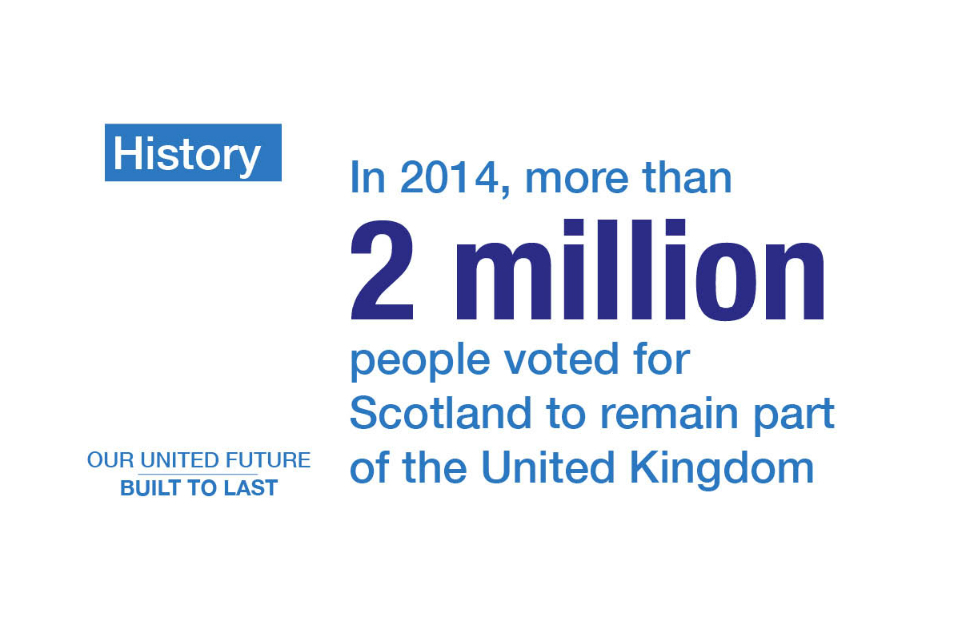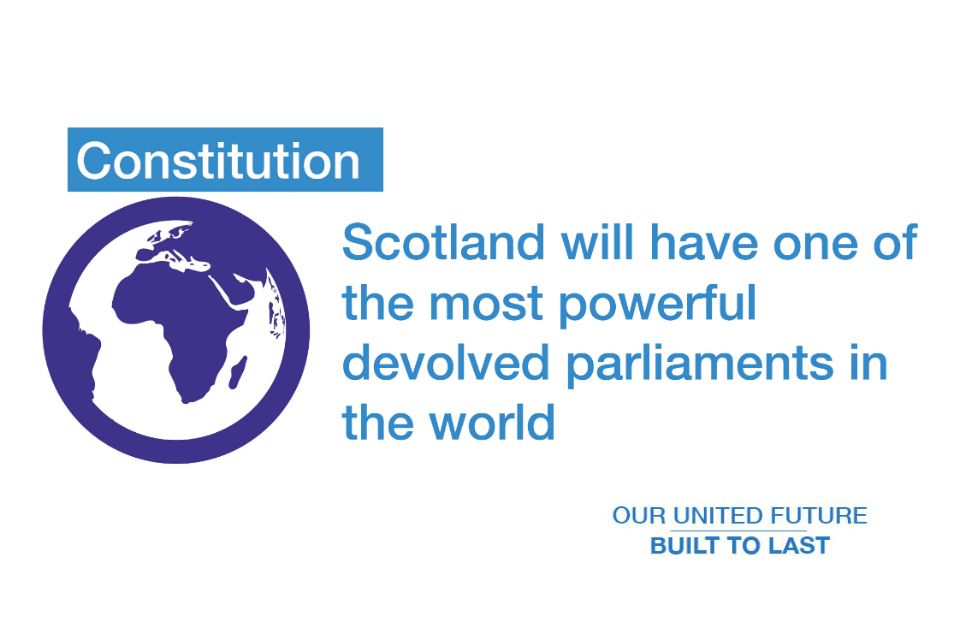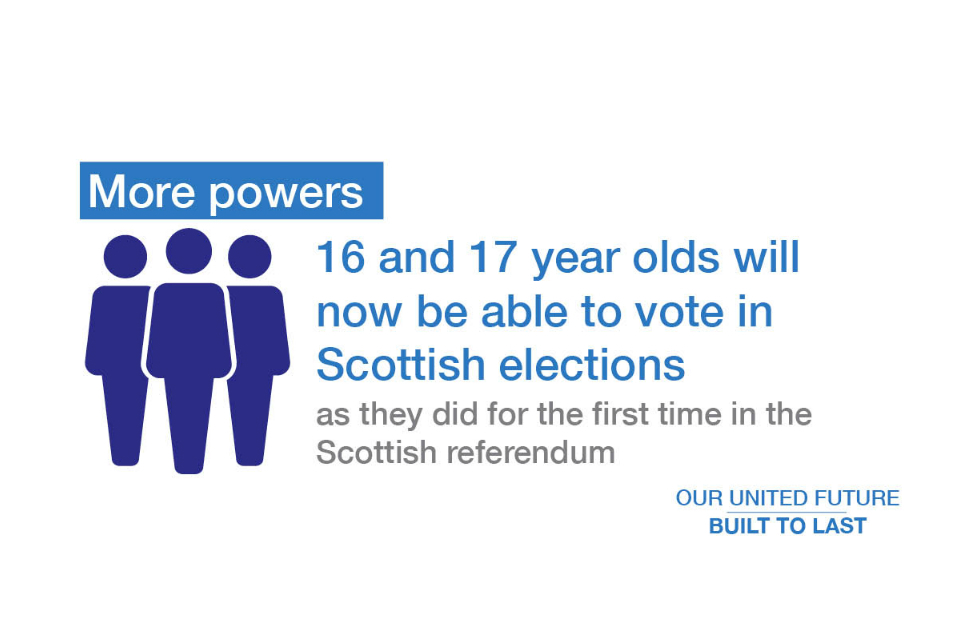Scotland in the United Kingdom: An enduring settlement - an overview
Published 22 January 2015
1. How did we get here?
In September 2014, the people of Scotland made a historic decision to retain the security and benefits of the United Kingdom whilst welcoming new powers for Scotland.
The UK Government listened - and then we acted.

In 2014, more than 2 million people voted for Scotland to remain part of the United Kingdom
We set up the Smith Commission, designed to bring forward a coherent and wide ranging package of powers which could be devolved from the UK Parliament to the Scottish Parliament.
Representatives from the five main political parties in Scotland were sent to the Commission – the first time all five have participated in a devolution process.
On 27 November 2014, Lord Smith delivered an agreement reached unanimously between all five parties - the basis for the Command Paper and draft clauses laid in Parliament on 22 January 2015.
2. What does it mean?
UK Government civil servants, in consultation with colleagues from the Scottish Government, have drawn up these draft clauses. They are the building blocks of a Bill which show how the measures included in the Smith Agreement would look in law.
There isn’t enough time before the next UK General election for this Government to take a new Scotland Bill through Parliament. But producing these draft clauses now means that whoever forms a government after the election in May will be able to turn them into law at the earliest possible opportunity.
The leaders of the three main UK-wide political parties, David Cameron, Nick Clegg and Ed Milliband, have all promised to take forward a Scotland Bill in the next Parliament.

Scotland will have one of the most powerful devolved parliaments in the world
3. What will change?
The Smith Agreement recommended devolving powers in a number of key areas.
3.1 On the Constitution
UK legislation will state in law that the Scottish Parliament and Government are permanent and given wide-ranging new powers over how they are elected and run. The Scottish Parliament will be given the power to legislate to reduce the voting age to 16 for Scottish Parliament and Scottish local government elections.

16 and 17 year olds will now be able to vote in Scottish elections
3.2 Crown Estate
Responsibility for the Crown Estate’s economic assets and the revenue they generate will be devolved to the Scottish Parliament.
3.3 On Tax
On income tax, future Scottish governments will have the power to set thresholds and rates on the money we earn, except for the tax on savings and share dividends. That revenue raised in Scotland will remain in Scotland.
In addition to the tax-raising powers already or soon-to-be devolved, the first ten percentage points of VAT receipts raised in Scotland, plus taxes like Air Passenger Duty and the Aggregates Levy will be devolved to Ministers at Holyrood. Additional borrowing powers will be agreed between the two governments.
3.4 On Welfare
The Scottish Parliament will have the power to legislate for discretionary payments to people in any area of welfare. In addition the Parliament will be able to set the rules about a wide range of benefits which affect carers and disabled people and create employment schemes to assist those at risk of becoming long-term unemployed.
The Scottish Government will also be able to vary the frequency of Universal Credit payments and vary the housing costs calculation within Universal Credit.
3.5 Other areas for action
The Smith Commission Agreement recommended further work between the UK and Scottish Governments on issues which do not require legislation. They include aspects of immigration and asylum, food, welfare and crime.
Initial discussions between UK and Scottish Government officials have either already taken place or are scheduled to occur over the coming weeks on all these issues.
The Smith Commission Agreement also makes non-legislative recommendations to strengthen the ways in which the UK and Scottish Governments work together in the best interests of both Scotland and the UK.
Work on this has already begun and will continue alongside the delivery of a new Scotland Bill. Taken together, these measures will make the Scottish Parliament one of the most devolved administrations in the world.
Insert infographic: Scotland will be one of the most powerful devolved parliaments…
At the same time, Scotland will have the benefit of being part of the UK, a country with a strong currency, the sixth-largest economy in the world, a permanent seat on the United Nations Security Council, and which is a leading member of NATO and the European Union. The Barnett Formula will also be retained.
We believe the powers set out in this Command Paper and draft clauses will deliver what was promised during the Referendum campaign; an enhanced devolution settlement for a 21st Century Scotland within the family of the United Kingdom.
